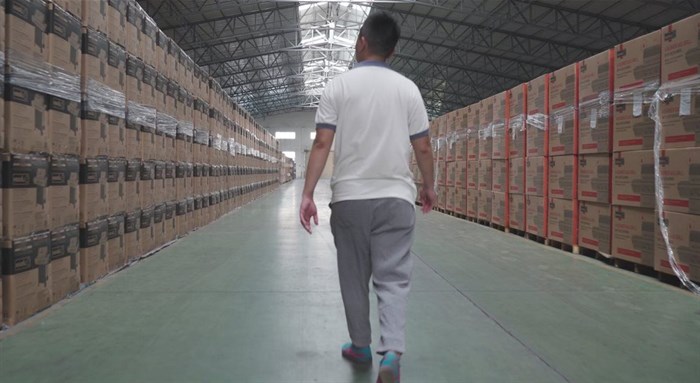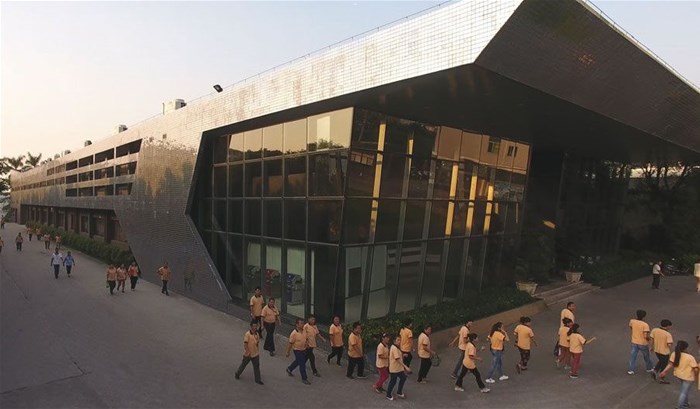International businessman, André de Beer, began his entrepreneurial career in 2005 when his family bought Megamaster, then a regional supplier of grills and fireplaces in the northern part of South Africa.
Since then, under de Beer’s leadership as CEO, the company grew from a relatively unknown South African grilling brand to changing the way South Africans experience outdoor cuisine and become a market leader in Africa’s wood, charcoal and gas grills sector.

Andre de Beer, CEO at Global Leisure Group
With the majority share in the South African grilling market, Megamaster now dominates other major international brands.
Spearheading the company’s international growth, de Beer negotiated manufacturing distribution and licencing partnerships with global brands Nexgrill and Kitchen Aid (licenced from Whirlpool) and opened markets in Europe, South America, the USA and Australia. This led to the establishment of Global Leisure Group, a partnership between Nexgrill Industries (a US Corporation) and Mega Group in South Africa.
Under de Beer’s leadership, Nexgrill, Megamaster, KitchenAid and private label grill products are now supplied to some of the largest retailers in the world, such as Walmart, Amazon, Canadian Tire Corporation in the Americas, Massmart and divisions, Pick n Pay, The Building Company (previous Steinbuild), Take-A-Lot in Africa and Barbeques Galore in Australia.
Despite this international success and reach, Megamaster’s head office remains in Pretoria and under the leadership of de Beer’s brother, Magiel de Beer, 140 staff members are employed over five regional offices.
So, what is the secret to success and how did de Beer know that the international market was the best way to grow his business?
“Firstly, the opportunity for major growth and international expansion needs to exist or you need to have the vision and ability to create it,” says de Beer. “There needs to be a clear path to actively generate it.”
De Beer provides some advice for South African entrepreneurs looking at expanding your business to the overseas market:
Know your scalability
- For global scalability, your core product offering needs to be universally acceptable, but should still be unique enough to stand out. Even though brands can be tailored to different regions, markets and countries, most of the product offering and future development needs to fit an international, multi-cultural market.
- Use and refine your established platform and business model in the expansion process. Don’t create a new way of supplying and serving the customer for each new opportunity as this defeats the purpose of scale and growth.
Get your fundamentals in place
- Establish a core leadership team that has practical experience in scaling as a constant requirement of your business. Employ team leaders who can grow your business, without having the mindset that success is only achieved by applying additional resources. Invest in a flattened hierarchy, which enables effective executive decision making. This is needed for a core and agile leadership team to have a necessary effect on expansion progress.
- Secure your supply-chain, operational ability and applicable approvals in time as well as align your business plan and goals.
With the establishment of Global Leisure Group in Hong Kong, this required de Beer to have in-depth consultations and negotiations with local governing organisations such as SARB (South African Reserve Bank) and the FSB (Financial Surveillance Board), to get business structure approval on benefitting offshore and local manufacturing. This flexibility is the ultimate key to being able to serve and supply international markets successfully.
- Remember trademark and patent registration in the countries and areas where you are planning to invest and grow in as an important risk management aspect.
- Understand and continue to remind and instil in your team members the original values and principles that formed the foundation on which your business was built.
- Ensure that you have local feet and expertise on the ground. New global markets cannot be successfully opened without a strong local presence.
Be aware of common mistakes
- Be careful of project leaders underestimating the time it takes to execute and see profits from new projects or expansion processes, even though timeous flexibility and adaptability is key to the success of expanding a business. Remember that legislation and compliance in certain global markets are very different from what local businesses might be used to.
- Don’t neglect the operation and expansion of your core business while new opportunities and projects are pursued. There is nothing worse than investing in new projects or expansion just to replace your neglected or declining projects or divisions.
- Be wary of neglecting careful consideration of worst-case effects on business if the project fails.
Execute your plan
- Turn your idea into reality. Although not an easy task, no real growth, innovation or disruption can be achieved without this competence in the organisation.
- Drive innovation by promoting an environment open to creativity and team contribution and collaboration.
- No-one will be able to understand the idea as well as you or the initiator, so spend time ensuring your core team understands and supports the idea. No idea, no matter how great, can be brought into realisation without the core team’s understanding and buy-in.
Says de Beer: “No new insights, contributions or ideas are bad, some are just better than others.”


